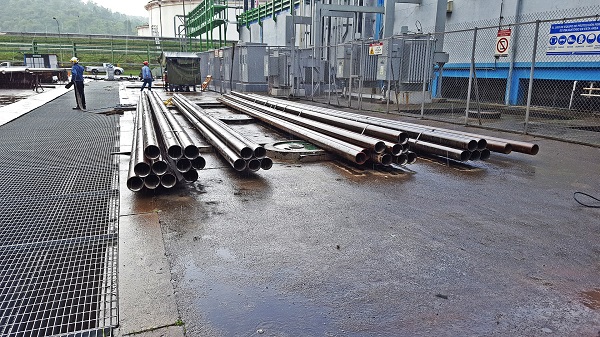You can probably guess that a master’s degree in petroleum engineering – one of the highest-paying master’s degrees – would lead to a career as a petroleum engineer. Within this field of petroleum engineering, however, are different types of job roles you might pursue. Although all of these positions involve using engineering principles and practices to design and develop solutions relating to the oil and gas company, they work on different aspects of the industry. Some of the main types of job roles in petroleum engineering, according to the United States Bureau of Labor Statistics (BLS), are reservoir engineer, drilling engineer, completions engineer and production engineer.
Reservoir Engineers
Extracting oil and gas is a complex undertaking that can cost millions of dollars, according to the United States Energy Information Administration. Companies don’t just make a haphazard guess where to dig or blindly start drilling. They don’t want to waste the money and time drilling in a place where there is no petroleum or too little of this resource to make extraction worthwhile. To guide them, companies in the oil and gas industry rely on an engineering professional called a reservoir engineer to locate and accurately estimate the amount of oil that can be extracted.
“Reservoir” is the term for the underground deposits of natural gas and crude oil. Crude oil can be extracted and refined into fuel sources like petroleum, while natural gas can be compressed into liquid natural gas, National Geographic reported. Since reservoirs are underground, finding and studying them to determine their suitability for extraction requires the use of applied mathematics, concepts and principles of subsurface geology and computer programs that allow for reservoir modeling and simulation. Reservoir engineers use what they learn from studying these underground deposits to plan the methods of extraction that the company will use to maximize the amount of oil and gas that can be obtained from this reserve.
In graduate-level petroleum engineering programs that offer a sequence of courses in reservoir modeling, specialized classes in this area might include geostatistics, geothermal reservoir engineering, rock physics and reflection seismology.
Drilling Engineers
To get to the deposits of natural resources, oil and gas companies need to drill deep into the Earth. Drilling engineers are the ones who oversee this effort. They come up with safe, cost-effective ways of drilling wells that cause as little destruction and disruption to the natural environment as possible, the BLS reported.
Drilling engineering coursework occurs both in the classroom and in the laboratory. Students learn how to use rotary drilling practices and oil and gas drilling equipment for the purposes of reaching subsurface petroleum deposits. They learn how to analyze drilling equipment to choose the right kind of equipment for a given site. Other areas of study within drilling engineering include hydraulics, rock mechanics and hole deviation. Drilling fluids, and particularly the chemical and physical properties of these fluids, are another part of studying the principles and practices of drilling engineering.
In addition to determining which type of well to use, drilling engineers are responsible for overseeing the construction and for estimating the costs of drilling the well, The Houston Chronicle reported.
Completions Engineers
IMAGE SOURCE: Pixabay, public domain
Drilling is an integral part of reaching an oil reservoir, but it takes more than just drilling to successfully extract petroleum products. Another type of petroleum engineer, called a completions engineer, takes over once the drilling component of the process is finished.
Completions engineers complete a well by designing and building a well and preparing the bottom of the hole drilled into the Earth for production. Completions engineers use different equipment and methods to complete wells and make resource extraction possible, including implementing pressure-control techniques, running special production tubing and engaging in hydraulic fracturing, according to the BLS.
Although the well completion stage can’t begin until after the hole is drilled, completion planning is an important part of setting up a reservoir for success. As such, completions engineers begin planning their well completion projects in advance.
Production Engineers
Reservoir engineers use math, science and technology to predict how much oil and gas a petroleum well will produce, but production engineers are the ones who oversee this production. After the drilling and completions stages are finished and the well is actively producing resources, the production engineer monitors the volume of petroleum materials produced, often by using downhole sensing equipment that offers a real-time glimpse into well performance.
In the event that a well is under-performing, the production engineer has to troubleshoot the well and figure out which of the many possible issues could be dragging down production. Fixes of petroleum well problems are referred to as workovers and can be (comparably) simple wireline workovers or major rig workovers. It’s a production engineer’s job to figure out what the problem is and identify a way to solve it.
Some of the factors that could restrict petroleum production include tubing sizes that don’t fit the current reservoir conditions, corrosion or erosion of tubing materials, deposits of byproducts on equipment and tubing and scale buildup inside wellbores.
Additional Resources
What Does It Mean to Be a Petroleum Engineer?
Will the Move to Cleaner Energy Make Finding a Job in Petroleum Engineering More Difficult?
What Is a Fair Range of Wages for Jobs in Petroleum Engineering?

